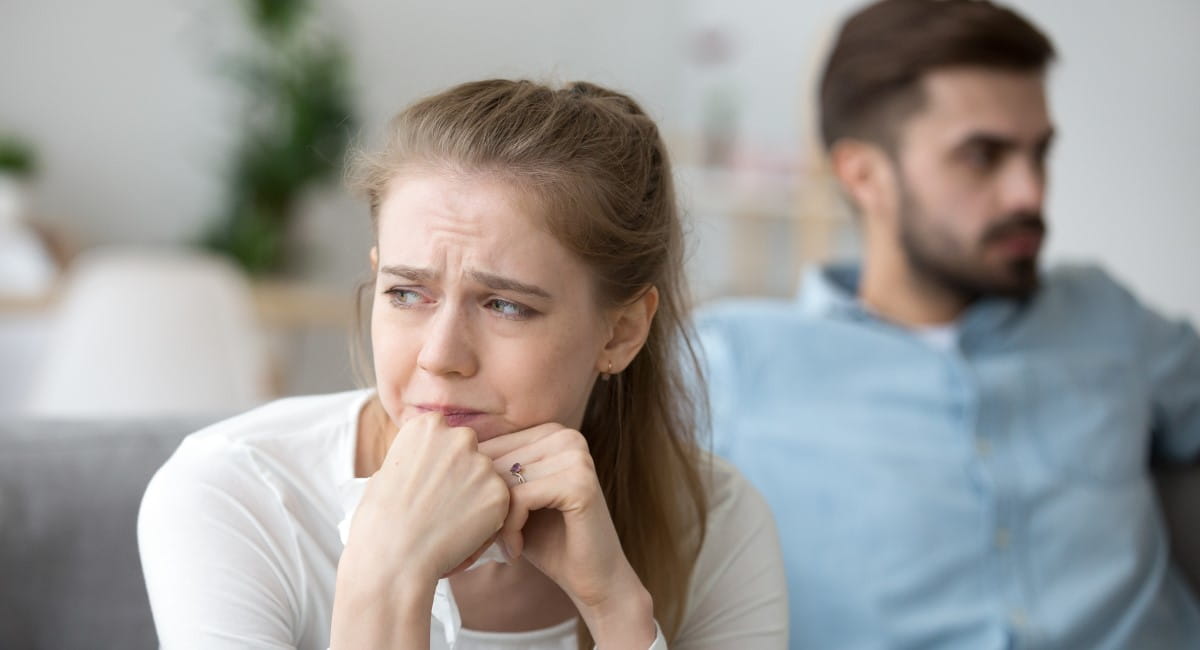“There’s a misconception that your partner has to be everything for you … And I think it's just not possible—and we are going to feel a deficit in our relationship if we’re looking for all of that.”—Helen Poynten, Regional Manager and Relationship Counsellor at Relationships Australia Queensland.
Key points
- Relationships form part of the “golden triangle of happiness”, while connectedness to a partner is associated with higher levels of wellbeing.
- Feeling lonely in a relationship can be bewildering and unexpected—but it’s also not uncommon.
- There are things you can do to re-connect if you feel lonely in a relationship. Reviewing your expectations, being honest, and talking about it are just some of the ways to get you back on track.
Even in a relationship, we can still feel lonely at times. While rom-coms might perpetuate the stereotype of partnering up to live happily ever after, for some of us the reality can be quite different.
We know from research that personal relationships are one of the key elements of wellbeing—and that a sense of connectedness to our partner is associated with higher levels of wellbeing. Indeed, the Australian Unity Wellbeing Index, a 20-year study into the wellbeing of Australians developed in partnership with Deakin University, has found that married people, followed by those in de facto relationship, report the highest levels of wellbeing.
But what happens when that connection breaks down and you still feel lonely—despite having a significant other?

Our basic need for connectedness
An Australian Unity community partner, the Black Dog Institute is a medical research institute with a focus on mental health. Black Dog’s Dr Peter Baldwin, a Clinical Research Fellow and Clinical Psychologist, says that as humans we have some basic psychological needs—and one of them is “connectedness and relating to other people”.
When this need is met, he says, the impact is far-reaching and life-changing. When we are in a meaningful relationship and have someone who is either mentally or physically close to us, “it changes the way your brain does a lot of things,” explains Peter. “Your heart rate, digestion, immunity, all of those sorts of things, they all change.”
And it can have a big impact on the way we feel, too. “Having someone who is very close, a special person, can make us feel happy because it fills that need for connectedness. But it can also make us happy because it just helps us regulate a lot of our emotions.”
Helen Poynten, Regional Manager at Relationships Australia Queensland, says relationships can bring fulfilment and purpose when they are based on “shared values around how we live and how we want to live, and our shared commitments”. Sexual intimacy can also make us feel connected, special, beautiful and alive.
The research also highlights the importance of this psychological need. Relationships are one of the main factors associated with the “golden triangle of happiness” along with standard of living (finances) and achieving in life (sense of purpose).
The deep impact of loneliness
If you’re feeling lonely in a relationship, you’re not alone. As Peter says, “Simply having a partner or having someone else in your house doesn't mean that you feel connected to them. During times of stress that connection can come and go, and particularly in long-term relationships and marriages where there are a range of stresses, it can happen.”
And when you start feeling lonely in a relationship, Peter says the shift can be bewildering because “there's probably been a lot of times in the past where you have really felt connected to that person”. You may have even been completely dependent on them for your connectedness needs.
Loneliness can also have a significant impact, both mentally and physically. “Feeling lonely in a relationship can be really bad for us. Loneliness is linked to bad health outcomes, on par with things like high-sugar diets and smoking.”

Re-connecting: ways to get out of the loneliness rut
Although it may seem futile, there are several strategies that can help you re-connect with your partner and start you on the path to a better relationship and better wellbeing.
These are the things the experts recommend to help you find your way back to connectedness.
Review your expectations
Helen says that sometimes we can expect too much from our partners. “There’s a misconception that your partner has to be everything for you. That they have to be your best friend. That they have to be the person that you want to do all your hobbies with and help you through the sad times. And I think it's just not possible—and we are going to feel a deficit in our relationship if we’re looking for all of that.”
For example, if you’re extroverted and your significant other is introverted, don’t take it as a rejection if they choose not to go out clubbing with you and your friends, says Helen.
Be honest
It’s also helpful to be honest—with our partner and with ourselves.
Being honest with your partner means avoiding behaviours such as the silent treatment, mind games or saying nothing is wrong when there is clearly a change in your mood or behaviour. Be up-front about how you’re feeling.
It also pays to be up-front with yourself. Try to get to the bottom of why you are feeling lonely in the first place. Think about what has changed in the relationship. Are you adjusting to married life? Are you dealing with an illness in your family? Are you feeling financially insecure? Outside factors can have an impact on how we feel.

Go back to the beginning
“Think about what cultivated the connection in the first place,” says Peter. “What was different when things were better or you didn’t feel as lonely?”
Sometimes we can get caught up in life, and things—important things—can fall by the wayside. Make time and space for each other and for the things that helped you form a bond. Re-enact some of the things you used to like to do together: have a date night, go for a hike or picnic, or find another activity that allows you to spend quality time together.
Talk about it
Do you find yourself talking about the groceries, the kids, your schedule and not much else? Make time for those deeper conversations that involve talking about your feelings and goals—without necessarily coming to a resolution each time.
If your partner isn’t receptive, talk with a trusted family member or friend about what you’re experiencing. You can, of course, also talk with a professional to help steer you in the right direction.
No-one wants to feel lonely in their relationship. We all have a psychological need to feel connected to the people around us, and our partners especially so. Understanding why you feel lonely is the first step to finding a solution.
Disclaimer: Information provided in this article is of a general nature. Australian Unity accepts no responsibility for the accuracy of any of the opinions, advice, representations or information contained in this publication. Readers should rely on their own advice and enquiries in making decisions affecting their own health, wellbeing or interest. Interviewee titles and employer are cited as at the time of interview and may have changed since publication.


